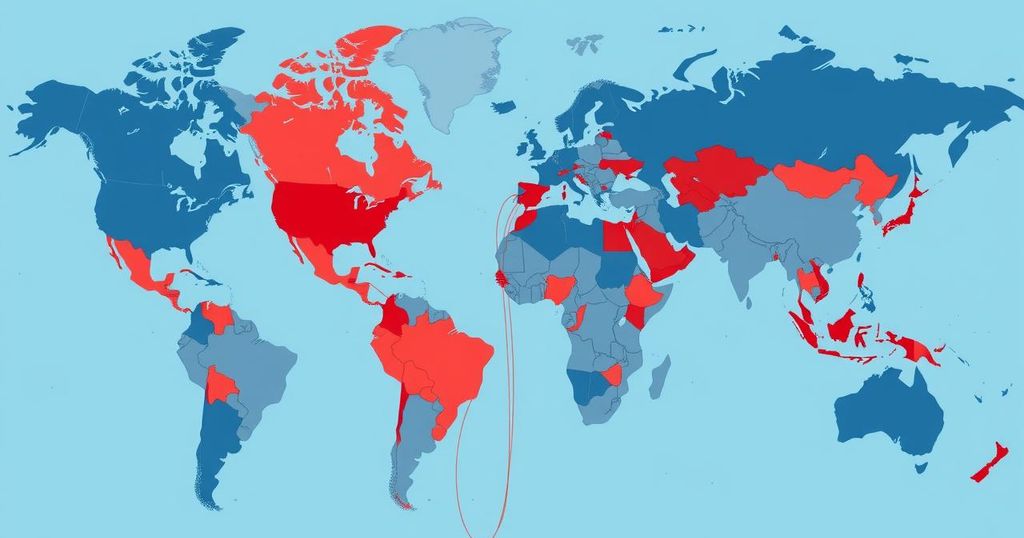President Trump may soon announce a travel ban affecting countries like Afghanistan and Pakistan, building on previous bans upheld by the Supreme Court. The potential ban could critically impact thousands of Afghans seeking resettlement after assisting US military efforts. Historical context outlines previous challenges to these bans and their legal complexities.
President Trump’s potential revival of a travel ban could restrict entry from countries like Afghanistan and Pakistan, likely to be announced next week. Previously, Trump’s administration issued an executive order directing cabinet members to compile a list of countries facing travel restrictions due to insufficient vetting and screening information. This revitalization echoes his earlier travel ban upheld by the Supreme Court in 2018, impacting seven percent of the global population.
Countries under potential consideration for the travel ban, as reported by major outlets, include Cuba, Iran, Libya, North Korea, Somalia, Sudan, Syria, Venezuela, and Yemen, in addition to Afghanistan and Pakistan. A travel ban affecting Afghanistan might severely impact approximately 200,000 Afghans awaiting Special Immigrant Visas for their collaboration with US military efforts. These individuals face increased danger from the Taliban for their actions during the 20-year mission in Afghanistan.
Resettlement is critical for those Afghans who assisted US troops, though exemptions for travelers seeking resettlement may be challenging. The State Department may request special considerations, but approval is uncertain. A statement from AfghanEvac advises eligible Afghans to prepare for potential travel restrictions even before an official announcement is made.
Previously, Trump enacted a travel ban in January 2017, barring entry from seven majority-Muslim countries, which faced legal challenges and was eventually struck down. Subsequent revisions removed Iraq from the list and amended exclusion criteria. The third version ultimately affected six majority-Muslim nations and was upheld by the Supreme Court in 2018, remaining in effect until President Biden’s repeal in 2021.
In summary, President Trump’s potential reinstatement of a travel ban may heavily impact travel from countries like Afghanistan and Pakistan, as well as other nations previously targeted. With many Afghans awaiting resettlement, the implications could be significant unless exemptions are granted. Trump’s previous travel ban history reveals challenges and legal hurdles faced, with its ultimate repeal occurring under the Biden administration.
Original Source: www.independent.co.uk






